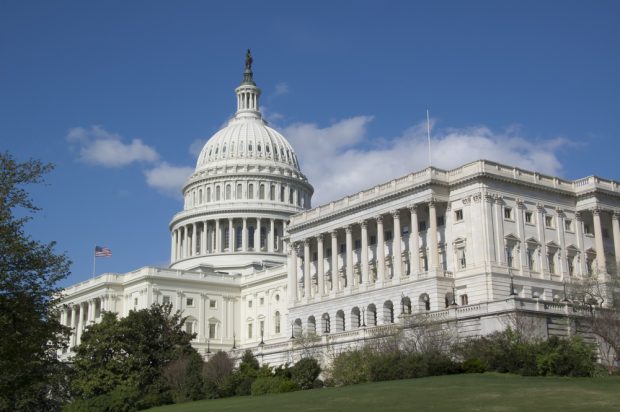 The U.S. Capitol Building.
The U.S. Capitol Building.
Congress returns to an extremely busy, but short post-Labor Day session and many of the issues directly affecting credit unions could die in the rush to adjourn, as members want to head home to campaign for reelection.
For instance, the House is scheduled to be in session for just 19 days before the mid-term election.
Recommended For You
In one of the highest-profile developments, the Senate Judiciary Committee today began four days of confirmation hearings on federal Judge Brett Kavanaugh's nomination to the U.S. Supreme Court.
Democrats renewed their call for a delay in the confirmation hearings, after the Trump Administration released some 42,000 documents concerning Kavanaugh just hours before the hearings began.
The Kavanaugh battle will take some time in committee and on the Senate floor.
Congress also must make decisions about funding the government before Sept. 30, the end of the fiscal years. Those decisions could take several forms. The House and Senate could punt the spending decisions until a post-election lame duck session by passing a Continuing Resolution funding much of the government at current levels until then.
Congress could wrap all the spending bills into a huge omnibus spending measure and pass the bills that way.
Congress also could take up the bills in a couple of so-called minibus bills—before or after the election.
The House version of the Financial Services appropriations measure would place the CFPB under the annual appropriations process. The Senate bill does not contain such a provision.
The House bill also includes a two-year delay in the NCUA's Risk-Based Capital rule; the Senate bill does not include that provision.
Senate appropriators have said they will fight any attempt to add controversial legislative riders to the funding bills, as they have in the past.
Some of the pressure by credit unions to include a delay in the RBC rule in the funding measure has been alleviated by the NCUA board's decision to delay implementation of the rule for one year.
However, the House and Senate must resolve a difference in the funding level that would be provided for the Community Development Financial Institutions program.
The Trump Administration has been pushing for the program to be killed since President Trump took office.
The House Financial Services appropriations bill calls for $216 million in FY19; the Senate bill includes $250 million—the same amount the program received this year.
Then there are the nominations.
Trump has nominated Republican Rodney Hood to re-join the NCUA board to replace Democrat Rick Metsger on the NCUA board. However, the Senate Banking Committee has not yet held a confirmation on Hood's nomination.
Republicans could be waiting for the Trump Administration to nominate a Democratic nomination for a vacant seat on the board, so they can pair the nominations.
Also awaiting confirmation is Kathy Kraninger as CFPB director. The Senate Banking Committee has recommended that the Senate confirm Kraninger. The vote was along party lines, with all Democrats opposing Kraninger.
A staff member for Sen. Elizabeth Warren (D-Mass.) has said that the senator will use every procedural tool available to block Kraninger's nomination.
The Hood and Warren nominations will die at the end of the year if they are not confirmed by them.
© Touchpoint Markets, All Rights Reserved. Request academic re-use from www.copyright.com. All other uses, submit a request to [email protected]. For more inforrmation visit Asset & Logo Licensing.






